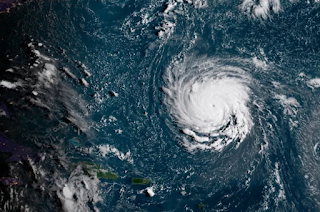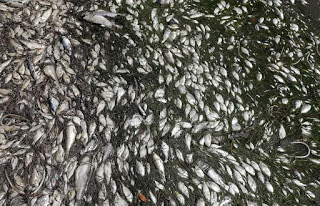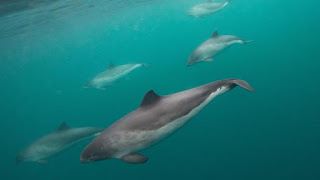Plastic Killing 40% Baby Sea Turtles, Japan’s Attempt to Remove Whaling Ban Fails, Oil Drill Battle Continues and More.
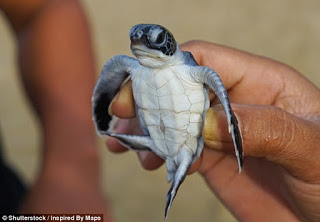 Plastic is killing 40 percent of young sea turtles, shocking new research has shown. Baby turtles are almost four times more likely to be killed by ingesting plastic waste compared to adults. Not only do these animals have weaker bodies, but they also feed in offshore waters closer to the surface, which are more likely to be contaminated with large plastic items that can accumulate in their digestive tracts. Post-mortems on almost 1,000 dead turtles found more than half of the babies – and about a quarter of juveniles – had swallowed plastic, compared to just one in seven adults.
Plastic is killing 40 percent of young sea turtles, shocking new research has shown. Baby turtles are almost four times more likely to be killed by ingesting plastic waste compared to adults. Not only do these animals have weaker bodies, but they also feed in offshore waters closer to the surface, which are more likely to be contaminated with large plastic items that can accumulate in their digestive tracts. Post-mortems on almost 1,000 dead turtles found more than half of the babies – and about a quarter of juveniles – had swallowed plastic, compared to just one in seven adults.
———————————————–
2. Japan’s Attempt to Overturn Commercial Whaling Ban Fails
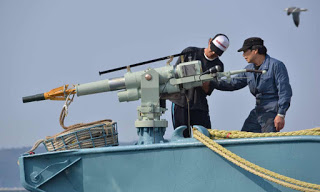
An attempt to overturn the decades-old global ban on commercial whaling has failed, to the relief of conservationists. Anti-whaling nations defeated by a decisive margin proposals from the Japanese government that would have allowed for the return of whale hunts. The vote, on the last day of this year’s meeting of the International Whaling Commission (IWC) in Brazil, was hailed by campaigners as a sign that pro-whaling nations will not be allowed to weaken global resolve to protect threatened species.
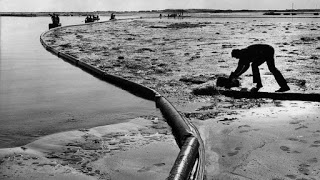 Gov. Jerry Brown on Saturday signed two bills that would block new offshore oil drilling in California by barring the construction of pipelines, piers, wharves or other infrastructure necessary to transport the oil and gas from federal waters to state land. This locks into law the vows of Brown and other state officials who declared earlier this year they would do whatever it takes to stop the Trump administration from opening California waters to drilling on an unprecedented scale. “Today, California’s message to the Trump administration is simple: Not here, not now,” Brown said in a statement. “We will not let the federal government pillage public lands and destroy our treasured coast.
Gov. Jerry Brown on Saturday signed two bills that would block new offshore oil drilling in California by barring the construction of pipelines, piers, wharves or other infrastructure necessary to transport the oil and gas from federal waters to state land. This locks into law the vows of Brown and other state officials who declared earlier this year they would do whatever it takes to stop the Trump administration from opening California waters to drilling on an unprecedented scale. “Today, California’s message to the Trump administration is simple: Not here, not now,” Brown said in a statement. “We will not let the federal government pillage public lands and destroy our treasured coast.———————————————–
4. How Far Will the Trump Administration Go to Loosen Offshore Drilling Rules?
 It is no secret that the Trump administration is pushing to vastly expand offshore oil and gas drilling. In early January Interior Secretary Ryan Zinke announced a new five-year plan for offshore leasing that would potentially open up more than 90 percent of federal coastal waters to energy development and include the largest number of lease sales in the program’s history. From Alaska’s Chukchi Sea and the rugged shores of the Pacific Northwest to the Gulf of Mexico and the Atlantic Coast, nothing was off the table. Zinke described it as one more step on the path to “achieving American Energy Dominance.”
It is no secret that the Trump administration is pushing to vastly expand offshore oil and gas drilling. In early January Interior Secretary Ryan Zinke announced a new five-year plan for offshore leasing that would potentially open up more than 90 percent of federal coastal waters to energy development and include the largest number of lease sales in the program’s history. From Alaska’s Chukchi Sea and the rugged shores of the Pacific Northwest to the Gulf of Mexico and the Atlantic Coast, nothing was off the table. Zinke described it as one more step on the path to “achieving American Energy Dominance.”———————————————–
(UNITED NATIONS) — Secretary-General Antonio Guterres warned Monday that the world is facing “a direct existential threat” and must rapidly shift from dependence on fossil fuels by 2020 to prevent “runaway climate change.” The U.N. chief called the crisis urgent and decried the lack of global leadership to address global warming. “Climate change is moving faster than we are,” Guterres said. “We need to put the brake on deadly greenhouse gas emissions and drive climate action.”
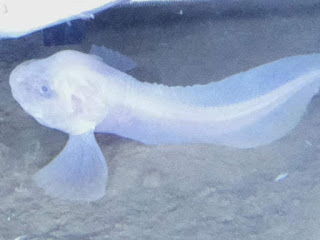
Three new species of fish have been found living in the pitch-black waters of the Atacama Trench, one of the deepest parts of the ocean. An international research team used baited camera traps deployed in the south-east Pacific Ocean to reveal the mysteries of this largely unexplored region. Despite the freezing cold and extreme pressures 7,500m (24,606 feet) down, the scientists found the trench was teeming with life. Among the creatures, they observed flocking around their bait were three new species of snailfish, animals with soft, translucent bodies well adapted to life in extreme conditions.
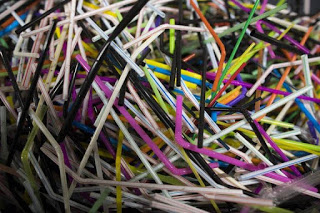 California restaurants could only provide plastic straws to customers upon request if Gov. Jerry Brown signs a measure now headed to his desk. Assembly Bill 1884 — which covers full-service dining, but not takeout establishments like fast-food restaurants — was approved 45-20 in the Assembly on Thursday. It aims to raise awareness about plastic pollution, according to Assemblyman Ian Calderon, a Whittier Democrat who carried the legislation. “This is a small step that isn’t a ban that can help us curb the issue of single-use plastics in our environment — the getting in our ocean, our waterways, and our landfills,” Calderon said on the Assembly floor. “These are not easily recyclable materials.”
California restaurants could only provide plastic straws to customers upon request if Gov. Jerry Brown signs a measure now headed to his desk. Assembly Bill 1884 — which covers full-service dining, but not takeout establishments like fast-food restaurants — was approved 45-20 in the Assembly on Thursday. It aims to raise awareness about plastic pollution, according to Assemblyman Ian Calderon, a Whittier Democrat who carried the legislation. “This is a small step that isn’t a ban that can help us curb the issue of single-use plastics in our environment — the getting in our ocean, our waterways, and our landfills,” Calderon said on the Assembly floor. “These are not easily recyclable materials.”The toxic algae bloom that has carved a trail of dead animals and triggered a putrid stench along western Florida’s coastline has drifted further north, killing hundreds of thousands of fish in the Tampa Bay region. The legions of dead fish were reported in a 20-mile stretch of coastline from Clearwater to St. Petersburg, environmental officials with Pinellas County told the Tampa Bay Times on Saturday. County workers roamed beaches and trawled offshore to collect the fish carcasses to head off decomposition as some beachgoers turned back. Rotting fish and the strong odor of the algae has previously repelled locals and imperiled Florida’s vital tourism sector for much of the summer.
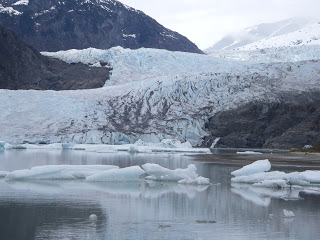 Today, the exact magnitude of the future increase in greenhouse gas concentrations remains unknown. This is partly due to the fact that carbon dioxide is not only produced by humans burning gas, coal, and oil; it can also find its way into the atmosphere as a result of natural environmental processes. The positive feedback between warming and the release of ever-increasing amounts of carbon dioxide from natural sources is a particular threat. In order to enable a better assessment of whether, and how, such developments are possible, climate researchers study records from the past to find evidence of these events.
Today, the exact magnitude of the future increase in greenhouse gas concentrations remains unknown. This is partly due to the fact that carbon dioxide is not only produced by humans burning gas, coal, and oil; it can also find its way into the atmosphere as a result of natural environmental processes. The positive feedback between warming and the release of ever-increasing amounts of carbon dioxide from natural sources is a particular threat. In order to enable a better assessment of whether, and how, such developments are possible, climate researchers study records from the past to find evidence of these events. How much of the world’s oceans are affected by fishing? In February, a team of scientists led by David Kroodsma from the Global Fishing Watch published a paper that put the figure at 55 percent—an area four times larger than that covered by land-based agriculture. The paper was widely covered, with several outlets leading with the eye-popping stat that “half the world’s oceans [are] now fished industrially.” Ricardo Amoroso from the University of Washington had also been trying to track global fishing activity and when he saw the headlines, he felt that the 55 percent figure was wildly off.
How much of the world’s oceans are affected by fishing? In February, a team of scientists led by David Kroodsma from the Global Fishing Watch published a paper that put the figure at 55 percent—an area four times larger than that covered by land-based agriculture. The paper was widely covered, with several outlets leading with the eye-popping stat that “half the world’s oceans [are] now fished industrially.” Ricardo Amoroso from the University of Washington had also been trying to track global fishing activity and when he saw the headlines, he felt that the 55 percent figure was wildly off. ———————————————–
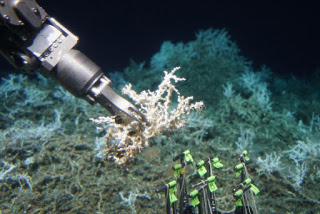 Scientists recently discovered an 86-mile-wide deep-sea coral reef off the coast of South Carolina as part of the “Deep Search 2018” expedition. These expansive mounds have likely existed for hundreds of thousands of years (since the arrival of modern humans), with new corals growing atop the skeletal debris of older ones. While four different coral species were collected at this site, the “stony” coral, Lophelia pertusa, was the dominant species. With their complex, three-dimensional structure, these corals create a protective habitat for a wide variety of marine creatures and are considered biodiversity hotspots. Deep-sea corals also assist in nutrient cycling throughout the world’s oceans.
Scientists recently discovered an 86-mile-wide deep-sea coral reef off the coast of South Carolina as part of the “Deep Search 2018” expedition. These expansive mounds have likely existed for hundreds of thousands of years (since the arrival of modern humans), with new corals growing atop the skeletal debris of older ones. While four different coral species were collected at this site, the “stony” coral, Lophelia pertusa, was the dominant species. With their complex, three-dimensional structure, these corals create a protective habitat for a wide variety of marine creatures and are considered biodiversity hotspots. Deep-sea corals also assist in nutrient cycling throughout the world’s oceans.
12. Proposal to Create Whale Sanctuary in South Atlantic Defeated
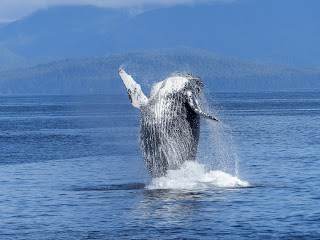 FLORIANOPOLIS, Brazil (AP) — A proposal to create a whale sanctuary in the South Atlantic was defeated Tuesday at a meeting in Brazil of the International Whaling Commission, amid a clash between countries that think whales can be hunted sustainably and others that want more conservation measures. Opponents of the plan argued the science didn’t support the case for a sanctuary and said that it wasn’t necessary because there isn’t any commercial whaling occurring in the South Atlantic.
FLORIANOPOLIS, Brazil (AP) — A proposal to create a whale sanctuary in the South Atlantic was defeated Tuesday at a meeting in Brazil of the International Whaling Commission, amid a clash between countries that think whales can be hunted sustainably and others that want more conservation measures. Opponents of the plan argued the science didn’t support the case for a sanctuary and said that it wasn’t necessary because there isn’t any commercial whaling occurring in the South Atlantic. It is no secret that the Trump administration is pushing to vastly expand offshore oil and gas drilling. In early January Interior Secretary Ryan Zinke announced a new five-year plan for offshore leasing that would potentially open up more than 90 percent of federal coastal waters to energy development and include the largest number of lease sales in the program’s history. From Alaska’s Chukchi Sea and the rugged shores of the Pacific Northwest to the Gulf of Mexico and the Atlantic Coast, nothing was off the table. Zinke described it as one more step on the path to “achieving American Energy Dominance.”
It is no secret that the Trump administration is pushing to vastly expand offshore oil and gas drilling. In early January Interior Secretary Ryan Zinke announced a new five-year plan for offshore leasing that would potentially open up more than 90 percent of federal coastal waters to energy development and include the largest number of lease sales in the program’s history. From Alaska’s Chukchi Sea and the rugged shores of the Pacific Northwest to the Gulf of Mexico and the Atlantic Coast, nothing was off the table. Zinke described it as one more step on the path to “achieving American Energy Dominance.”———————————————–
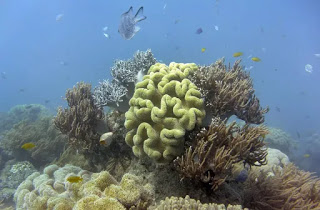 Experts in Australia have reported that corals affected by mass bleaching events are showing significant signs of recovery in what is a rare piece of good news for the Great Barrier Reef (GBR). The non-profit Reef & Rainforest Research Centre (RRRC), based in the city of Cairns, Queensland, says that milder summers in 2017 and 2018 have helped the reef to bounce back in several locations. In 2016 and 2017, many parts of the GBR—and other reefs around the world—experienced severe coral bleaching, which occurs when the organisms are placed under too much stress from high water temperatures, poor water quality, or other triggers.
Experts in Australia have reported that corals affected by mass bleaching events are showing significant signs of recovery in what is a rare piece of good news for the Great Barrier Reef (GBR). The non-profit Reef & Rainforest Research Centre (RRRC), based in the city of Cairns, Queensland, says that milder summers in 2017 and 2018 have helped the reef to bounce back in several locations. In 2016 and 2017, many parts of the GBR—and other reefs around the world—experienced severe coral bleaching, which occurs when the organisms are placed under too much stress from high water temperatures, poor water quality, or other triggers.Campaigners say that electronic underwater devices used to scare seals away from fish farms are causing distress to whales and dolphins more than 30 miles away. The acoustic deterrent devices (Adds) are said to have a detrimental effect on cetaceans including minke whales and the European Union protected harbor porpoises. Campaigners want the Scottish government and the Joint Nature Conservation Committee to include in the UK’s Marine Noise Registry the “loud and pervasive” noise pollution that comes from salmon farms using Adds. This would lead to more scrutiny over their operation.

